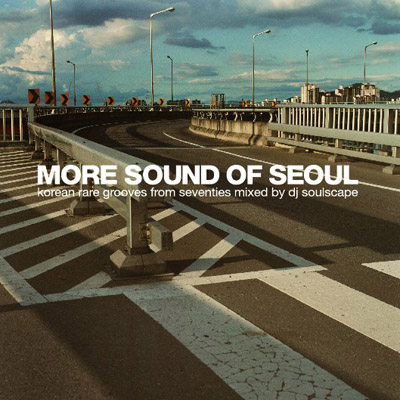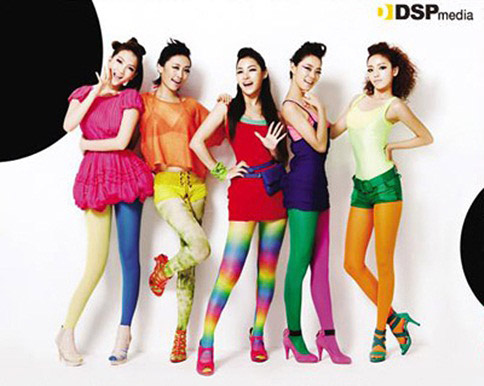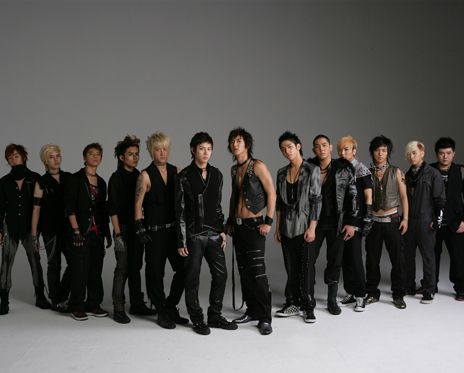Well, 2011 is well underway, but I am still putting together my thoughts about 2010. This certainly is not a complete list, but it is a short list of recommendations of some good Korean indie music that I came across. Hopefully the music scene can keep up the momentum and turn it into more mainstream success soon. But to give you a quick rundown here:
1) DJ Soulscape – More Sound of Seoul
Far and away the best album of the year. DJ Soulscape mixed together a huge smorgasbord of great Korean music from the 1970s, most of which you’ve never heard before. It’s as educational as it is fun, and all-round brilliant.
(Yes, this was released in late 2009, but it was such a great album, full of wonderful and obscure Korean songs from the 1970s, I am putting it in this list)

Then, in alphabetical order:
Apollo 18 – Violet and Red
One of Korea best rock/post-rock bands today put out two interesting albums this year. Red was a re-release of last year’s album, but completely re-recorded and with a few extra songs added (thanks to the money they earned from a KOCCA grant, after their Hello Rookie win in 2009). Together with 2009’s Blue, each album has a slightly different feel, while still being a unified sound.
Glittering Blackness, Fall – EP
Glittering Blackness, Fall is one of the most interesting of Korea’s many instrumental, “post-rock” bands. Their EP is just four tracks long, but each is a surging blast of noise and swirling progressions.
Jambinai
One of the most unusual new bands around, Jambinai uses Korean traditional instruments, but cannot really be considered “traditional” music at all. With their ambient, surging style, they are closer to post-rock than anything from the Joseon Dynasty. But their use of Korean traditional instruments makes their sound incredibly haunting and captivating.
Lee Sang-eun – We Are Made of Stardust
With her 14th album, Lee is quite a veteran of the Korean music scene. But while some of her albums can be repetitive, and sometimes boring, this is one of her most creative and lively in quite some time. A little uneven, sure, but most of the songs here are quite pleasant and catchy. Even more surprising, her voice sounds clearer than it has in quite some time. Has recording technology found a way to reverse the effects of 20 years of smoking? No idea, but this was a good album.
Lowdown 30 – Another Side of Jaira EP
Growling blues rock, like the Black Keys. Not all the songs work, but the best are gravelly, heavy fun. The first song Jungdok is especially good.
Oriental Lucy – Midnight Hotel
More quirky and electronic album (and Portishead-like) than their first EP, Oriental Lucy is more alternative/indie rock, like the kind of thing you might hear on KCRW or some college radio station in the West like that. At times more New Wave sounding, singer Soohee’s brings their songs an unusual urgency and energy.
Sunkyeol – EP
A moody, acoustic ambient release, I found Sunkeyol a pleasant surprise. I am not sure what I was expecting, but their album was surprisingly moving for such a simple sound. I am told it was actually recorded in 2006, but just released last year.
Swimmingdoll – 8winningdoll
One of the more interesting and unusual entrants into the post-rock, shoegazer genre. Swimmingdoll songs start out pleasant and haunting, but then jar with odd atonal shifts and dubs.
In general, I think 2010 was a very good year for Korean indie music*. I had not even noticed until I started putting together this list, when I kept rediscovering one solid album after another. Not simply strong in one genre or another, the Korean music scene is more diverse than I can remember it ever being, with great hard rock bands, acoustic, postrock, dance and whatever Jambinai is.
But one strange thing I have noticed is that, in general, Korean bands’ recordings are is much stronger than their live performances. When I first got interested in Korean indie music, back in the 1990s, the opposite was very much true. Considering I live in Europe these days and do not get to Korea often, this is a development I am happy with. But at some point, bands are going to have to develop stage presence if they want to break out of the Hongdae underground (especially if I am going to keep running the Korea Gig Guide).
For more opinions on top Korean albums in 2010, you can check out the Korea Gig Guide, where I share my thoughts, along with contributors Shawn Despres, Dain, and Kim Jongyoon of Scatterbrain. You can also read some interesting columns over at Philip Gowman’s London Korea Links — Anna Lindgren, Saharial, and Philip himself.
As for non-Korean stuff… It is hard to keep track of releases, but here is what I could recall really enjoying:
Black Keys – Brothers
Grinderman 2
Holy Fuck – Latin
Janelle Monáe – The ArchAndroid
Japandroids – Post-Nothing (yeah, this was 2009, too, but I just heard it in 2010 and I loved it, so I am including it)
Naked and the Famous – Passive Me, Aggressive You
Robyn – Body Talk
Stromae – Cheese
Tron OST
Zoey Van Goey – The Cage Was Unlocked All Along
——————
*The rise of Korean indie music this year also boosts my little (and not very serious) theory that the success of Korean movies and music are inversely related. The better one does, the worse the other seems to do. Last year, Korean music was really good, but movies were remarkably mediocre. Go back to the 1950s, and it seems like, again and again, whenever one areas gets better, the other takes a dive. Movies flourish in the late 1950s, then drop off in the later 1960s—around the time music takes off. Then Park Chung Hee kills of the great Korean rock scene in the 1970s, and soon after movies make a small comeback (well, the 1980s were a tough time artistically in Korea for all art forms, I think). The 1990s saw music rise up again, then crash spectacularly after the financial crisis, just as movies going on their amazing run. It’s spooky, I tell you.










